For the past year, Israel, in partnership with the United States, has invested substantial resources in response to the October 7, 2023, attack on a music festival, which resulted in 251 hostages being taken, 1,139 fatalities and numerous injuries. As the pursuit of justice escalated, the conflict spiraled into an all-out war, sparking concerns about potential ethnic cleansing. Yahya Sinwar, the leader of Hamas and believed to be the mastermind behind the attack, became a primary target due to his role in orchestrating violence against Israeli civilians. On October 16, 2024, Israeli training squad commanders accidentally located and killed Sinwar.
Despite Sinwar’s death, Hamas remained undeterred, announcing that no Israeli captives would be released until bombardments ceased and Israeli military forces fully withdrew from Palestine—a demand Benjamin Netanyahu firmly rejected. This stance highlights Hamas’s strategy of using prisoner negotiations as political leverage. Sinwar’s assassination is a significant blow to Hamas, which he led since 2017. However, Israeli Prime Minister Benjamin Netanyahu declared, “Our war is not yet ended. The return of the hostages is an opportunity to achieve all of our goals, and it brings the end of the war nearer… Hamas will not rule again in Gaza. This is the beginning of the day after Hamas, and this is an opportunity for you, residents of Gaza, to finally be free of its tyranny.” His remarks signal further violence and suffering for Palestinian civilians, who have already faced extensive humanitarian crises—including displacement and destruction of infrastructure—yet refuse to submit to Israeli demands.
Yahya Sinwar was born in Khan Younis, a refugee camp in Gaza, which reflects the ongoing plight of Palestinians. His parents were forcibly expelled from Majdal Asqalan during the 1948 Nakba. Refugees then, as now, endured overcrowding, lack of medical care, insufficient food and water, and inadequate hygiene facilities. The camp, overwhelmed by the influx of displaced people, continues to rely heavily on the United Nations Relief and Works Agency (UNRWA), which serves approximately 1.5 million registered Palestinian refugees.
Growing up in the overcrowded and challenging conditions of Khan Younis, Sinwar witnessed firsthand the hardships his community faced. His family’s extreme poverty—so severe that Sinwar sometimes wore clothes made from UNRWA potato sacks—instilling in him a deep understanding of the socio-political dynamics affecting Palestinians. He later attended the Islamic University of Gaza, where he earned a bachelor’s degree in Arabic studies. During his time there, he became increasingly drawn to Islamic teachings, especially their emphasis on social justice, resistance, and identity. These influences helped shape his ideological beliefs and eventual leadership role within Hamas.
Before joining Hamas, Yahya Sinwar was involved with Al-Majd, a counter intelligence group responsible for identifying Palestinian informants collaborating with Israeli forces. During this time, accusations of collaboration often led to severe consequences, including violence, as preserving the integrity of the resistance was deemed crucial to the Palestinian cause. An academic, who wishes to remain anonymous, stated, “Sinwar’s role in eliminating collaborators was considered particularly dangerous by Israeli authorities. These actions, which included assassinations, were part of a broader strategy to maintain Hamas’s integrity and prevent Israeli intelligence from infiltrating the movement.”
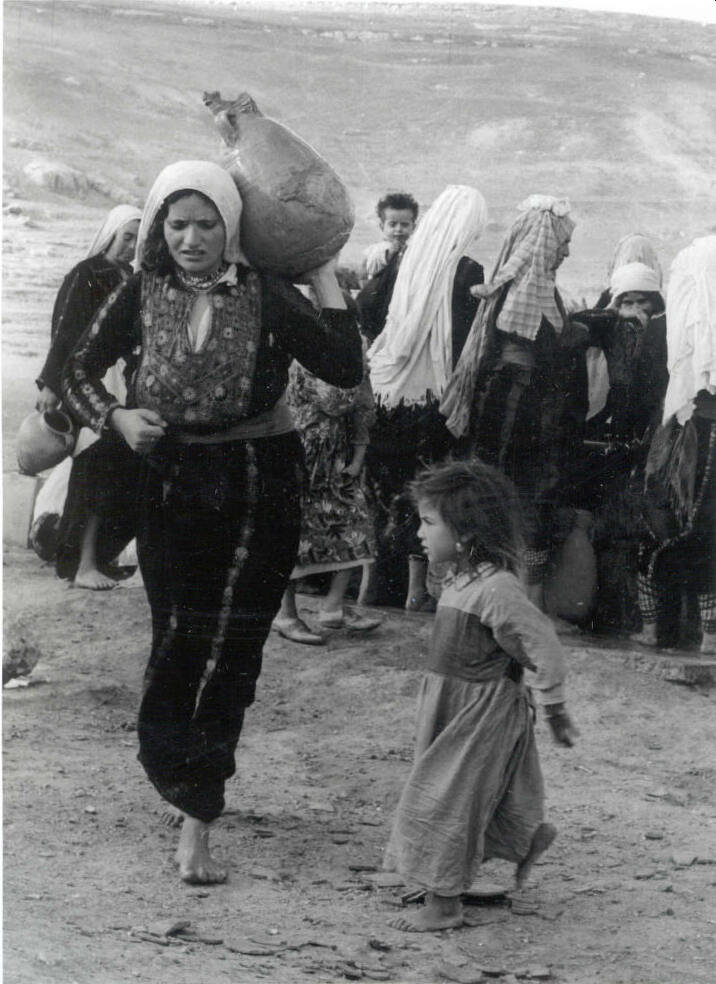
Yahya Sinwar was arrested in 1989 by Shin Bet, Israel’s internal security agency, for his involvement in violent acts against Israel, including the killing of Israeli soldiers. He was sentenced to four consecutive life sentences for these crimes, which he confessed to. His arrest came during the broader Israeli crackdown on Hamas and other militant groups in response to the First Intifada, a Palestinian uprising that lasted from 1987 to 1993.
The First Intifada was a mass uprising against Israeli occupation in the West Bank, Gaza Strip, and East Jerusalem, defined by widespread grassroots resistance. While there were violent confrontations, such as stone-throwing and attacks on Israeli soldiers and settlers, much of the resistance focused on nonviolent civil disobedience designed to undermine Israeli control over Palestinian territories.
One of the central strategies was the boycott of Israeli goods, a deliberate effort to weaken the Israeli economy while promoting Palestinian self-reliance. Palestinians refused to purchase Israeli products, instead supporting local businesses and encouraging the production of Palestinian goods. This economic boycott was not limited to consumer goods—it also targeted Israeli businesses and institutions, aiming to disrupt daily life and expose the vulnerabilities of occupation.
Palestinian workers participated in labor strikes, refusing to work in Israeli factories, farms, and industries as a way of disrupting Israeli economic interests. These strikes were a powerful statement of resistance, as they reduced the labor force upon which Israeli industries relied. Shopkeepers in Palestinian areas would frequently close their stores in protest, creating a collective and visible show of defiance.
Education, too, became a critical battleground during the First Intifada. Israeli authorities, fearing that schools and universities were breeding grounds for political activism, frequently closed Palestinian educational institutions. This policy sought to curtail the ability of Palestinian youth to organize and mobilize. In defiance, Palestinians set up underground schools and informal classes in homes, mosques, and community centers. These secret schools provided not only academic education but also fostered a sense of national identity and resistance among young Palestinians.
During his time in prison, Sinwar wielded considerable power and influence among Palestinian inmates, becoming a central figure in organizing resistance from within the prison walls. In 2012, Sinwar led a hunger strike to protest the harsh conditions faced by Palestinian prisoners, drawing attention to systemic issues such as overcrowding, inadequate medical care, and limited access to legal representation. His leadership highlighted the long-standing grievances surrounding the treatment of Palestinian detainees, many of whom suffered under degrading conditions, including torture, as documented by organizations like Amnesty International.
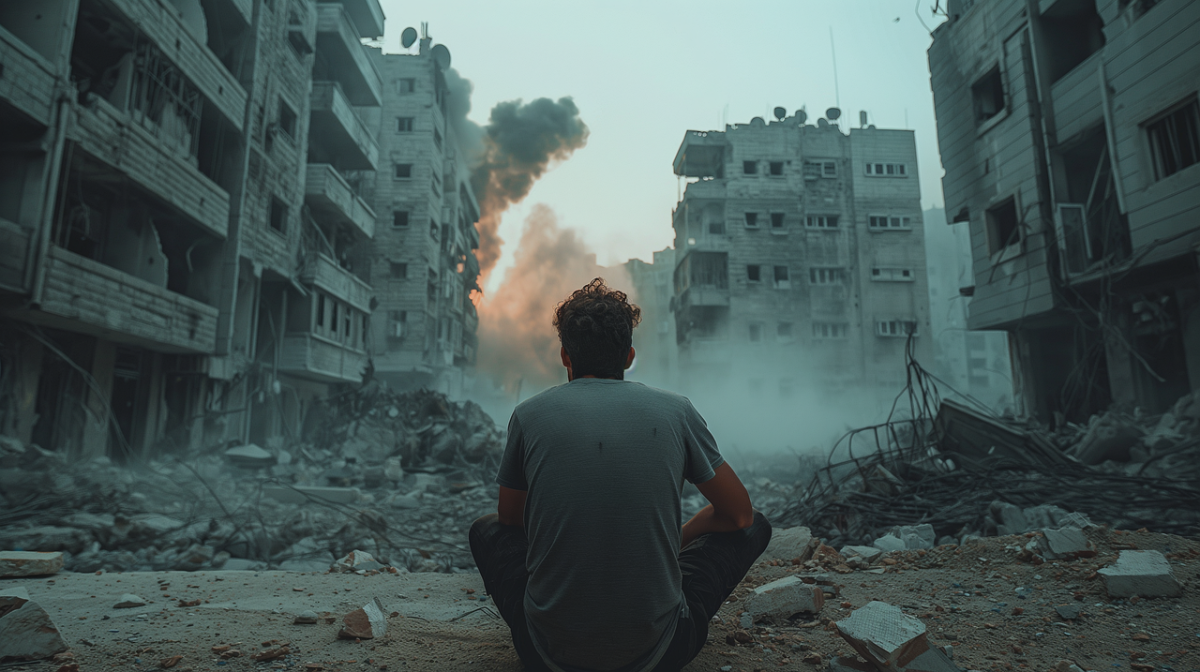
As Ghazi Hamad, a senior Hamas official, noted, Sinwar’s role was pivotal during this strike, as he led over 1,000 prisoners who survived on nothing but water and salt. His refusal to accept partial concessions demonstrated his steadfastness, earning him international notoriety and the respect of his fellow prisoners. Sinwar’s leadership in the prisons focused not only on improving conditions but also on maintaining the morale and unity of Palestinian prisoners, positioning him as a key figure in the broader Palestinian resistance movement. “Prison is a place where Palestinian factions, including Hamas and Fatah, often engage in political education, strategic discussions, and building solidarity among prisoners.”
Even from behind bars, Yahya Sinwar’s reputation continued to grow, establishing him as a prominent figure within the Palestinian prisoner community. He advocated for militant strategies and served as a mentor for younger inmates, organizing educational programs and discussion groups that bolstered their resolve and knowledge. Sinwar instilled a sense of ideological rigor among his fellow prisoners, many of whom would later rise to leadership positions in various Palestinian factions. Notably, Ismail Haniyeh, who eventually became a senior leader in Hamas. Another key figure is Mohammed Deif, the leader of the Al-Qassam Brigades.
Sinwar’s resourcefulness was evident in his ability to communicate with the outside world despite stringent prison restrictions. He maintained a network of loyal followers both inside and outside the prison, coordinating activities to ensure that resistance efforts continued unabated. His twenty-two years of incarceration also provided him with a unique opportunity to study Israeli military tactics in depth. He meticulously analyzed strategies employed during the Second Intifada, focusing on Israel’s responses to Palestinian uprisings, the use of advanced technology, and urban warfare tactics. Sinwar even translated texts from former Shin Bet chiefs from Hebrew to Arabic, sharing these valuable insights with his fellow inmates. He famously declared, “One day I will leave this prison. I will leave this prison when I want; I will kill when I want.” He further promised that it would be the oppressors who would one day find themselves behind bars. This statement underscored not only his personal resolve and restraint while incarcerated but also his unwavering commitment to the freedom of his people and in justice for the opressors.
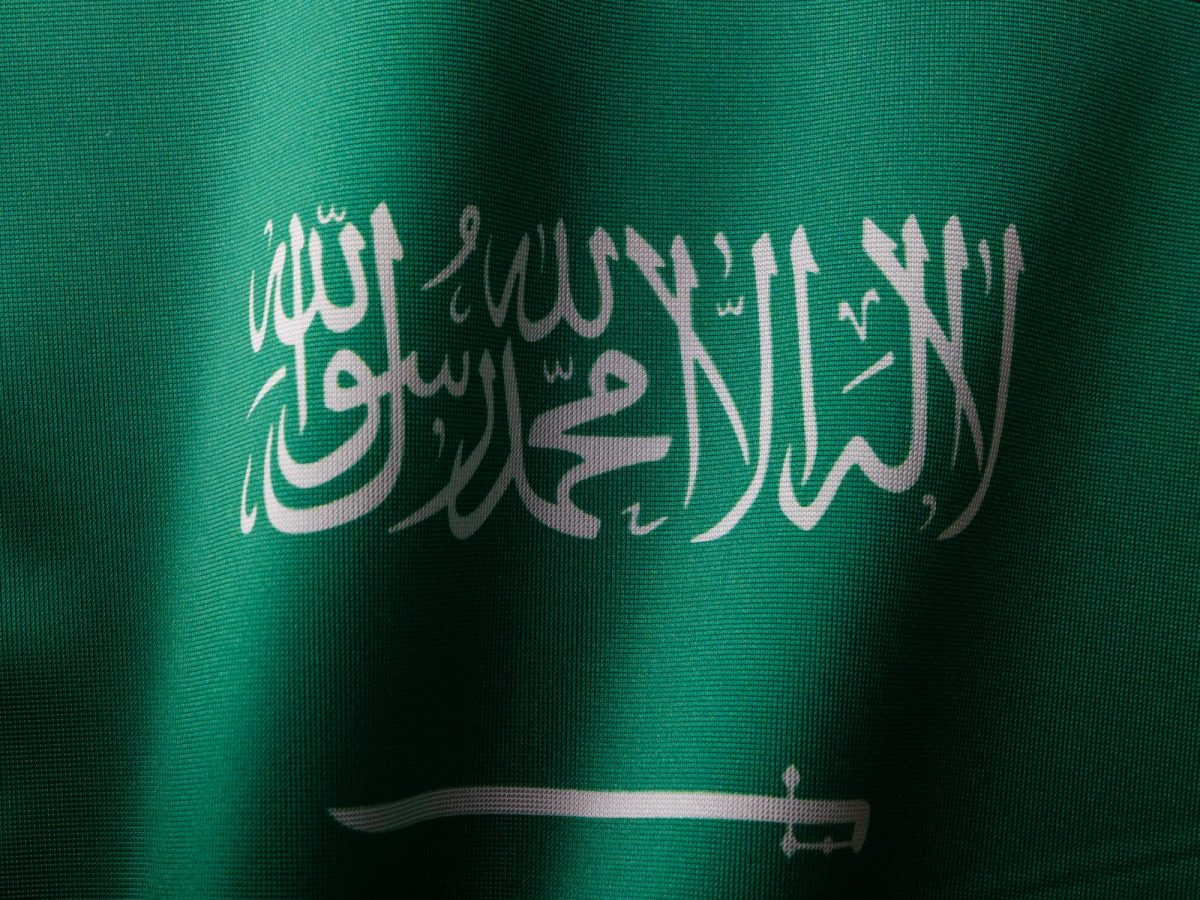
His eventual release came in 2011 as part of the high-profile prisoner swap for Israeli soldier Gilad Shalit, who had been captured by Hamas in June 2006 during a cross-border raid. Israelis believed that Sinwar had finally accepted Israel’s new role in the region, a ruse he maintained in his final years. The exchange involved the release of over 1,000 Palestinian prisoners, making it one of the largest swaps in the history of the Israeli-Palestinian conflict and drawing significant international attention. Shalit had become an Israeli national obsession; he was taken captive in an incident that resulted in the deaths of two soldiers and two Palestinian militants. He spent five years in Hamas detention, during which he was denied any communication with the outside world, in violation of international law. His captivity sparked widespread public outcry in Israel, leading to mounting demands for action, ultimately culminating in the largest prisoner swap to date.
Sinwar’s brother, responsible for guarding Shalit, played a crucial role in advocating for Sinwar’s inclusion in the exchange. Marking a significant moment in Hamas’s history, Sinwar’s release reinvigorated its leadership and military strategy, strengthening the group’s resolve in its ongoing conflict with Israel. Following his return, Sinwar quickly rose to prominence within Hamas, ultimately becoming a key leader in the organization’s military and political operations in Gaza. His fiery attitude and determination propelled him into an elected leadership role by 2017.
Since his election, Sinwar has sought to improve relations with other Arab states, including Iran and Egypt. Under his leadership, Hamas has aimed to strengthen ties with these countries to garner political and military support. Iran has provided financial assistance and military training to Hamas, while Egypt has acted as a mediator in negotiations between Hamas and Israel. Sinwar also played a key role in Palestinian reconciliation efforts, urging unity among Palestinian factions, particularly with Fatah. “Sinwar navigated these alliances with an eye toward ensuring that Hamas remains an independent Palestinian movement, focused on Palestinian instructs, rather than becoming a proxy war for regional powers.”
Although an outspoken critic of the Israeli government, Sinwar has expressed support for a two-state solution, envisioning a future where both Palestinians and Israelis coexist peacefully. He believes this solution should encompass not only the Arab population that has suffered under Israeli policies but also the Jewish population, provided they distance themselves from Zionist. He stated, “A just solution must include not only the suffering Arab population but also the Jewish people, provided they separate themselves from the Zionist political entity.” In his fight against Zionism, Sinwar supported mass protests and the “Great March of Return” campaign, which demanded the right of return for Palestinian refugees, offering a powerful assertion of Palestinian rights.
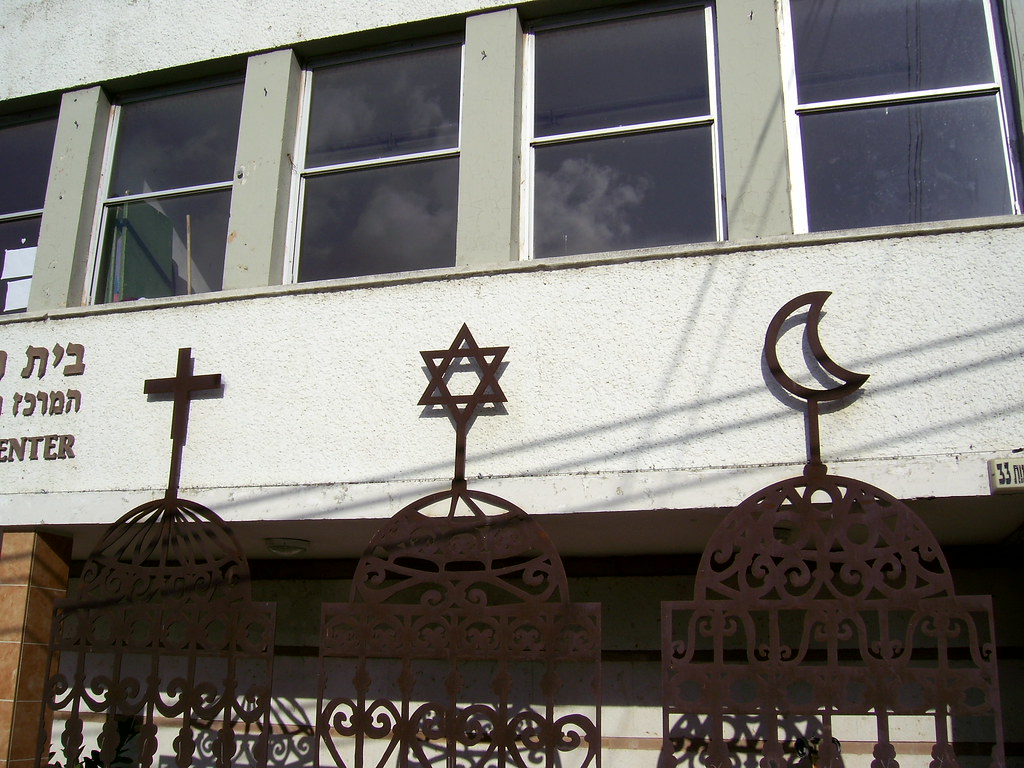
Sinwar’s stance challenges the narrative often presented by Western media, which tends to portray Hamas solely as a militant organization. By advocating for a political solution, he positioned Hamas as a legitimate actor in the peace process, capable of engaging in dialogue while still holding firm to its principles of resistance against occupation.
On October 7, 2023, Yahya Sinwar again found himself in the direct line of fire from the Israeli Defense Forces (IDF). Following the devastating attacks on a music festival, Sinwar was identified as a key architect behind these assaults, making him a top priority for Israeli military operations. In response, Israel launched a full-scale operation aimed at locating and capturing Hamas leaders, with Sinwar at the forefront of their objectives.
Yahya Sinwar’s strategic importance within Hamas is evident through his extensive history of militant activities and his pivotal role in planning and executing numerous attacks against Israeli targets. His leadership has been a driving force behind Hamas’s military strategy, which includes rocket attacks, tunnel operations, and coordinated assaults on Israeli territories. While many Palestinians see him as a symbol of steadfastness and resistance, he has faced criticism for his hardline approach. Some advocate for a less violent strategy, pointing to the humanitarian crisis and questioning the effectiveness of military engagement.
Reports from international observers and human rights organizations have highlighted the significant impact of the Israel Defense Forces’ (IDF) operations on the civilian population in Gaza, leading to widespread displacement, extensive damage to infrastructure, and a deepening humanitarian crisis. Despite these reports, Israel continues its relentless attacks on the people of Palestine.
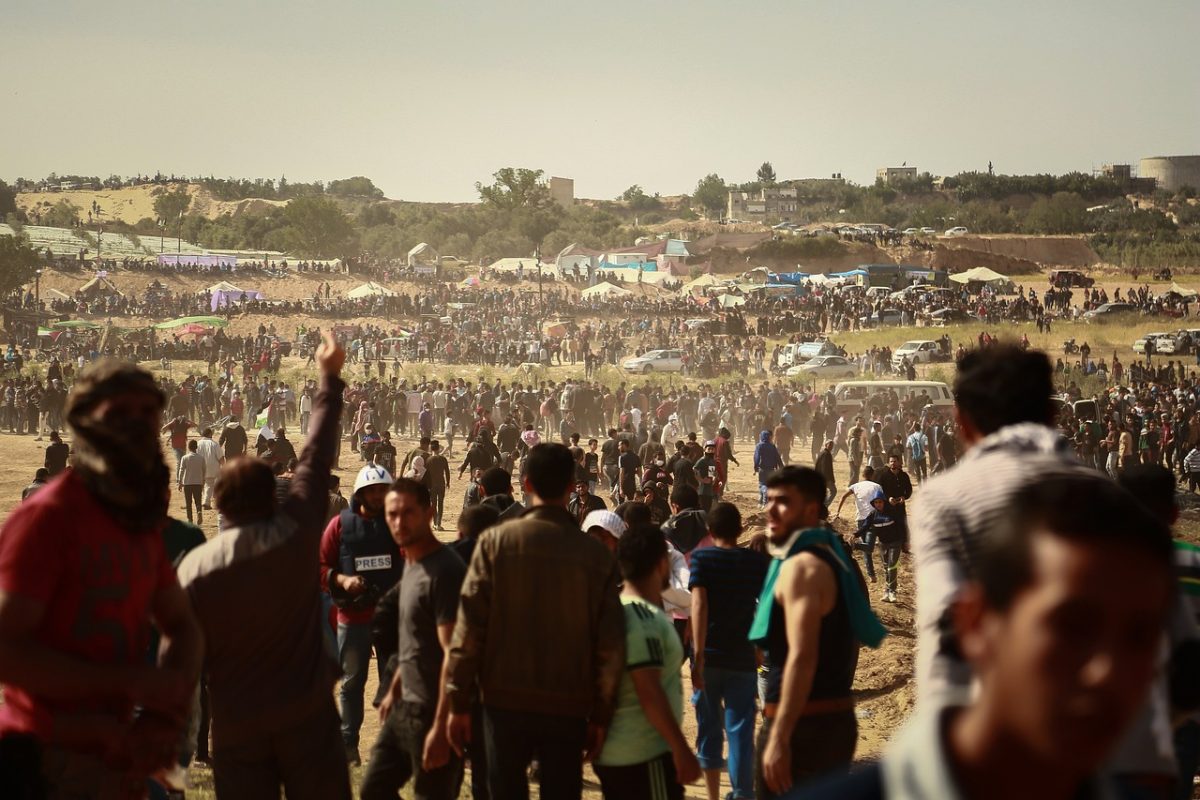
On October 5, 2024, Israel launched a ground invasion targeting the evacuation of civilians in Beit Hanoon, Beit Lahiya, the Jabalia refugee camp, and Jabalia town, while also halting the flow of humanitarian aid. The stated objective was to eliminate regrouped militants, but global organizations expressed deep concern that the invasion could be part of a broader strategy of ethnic cleansing in the region.
During the invasion of Tal as-Sultan in Rafah, a training unit of squad commanders unexpectedly encountered Yahya Sinwar and his unit, resulting in an exchange of fire. At 62 years old, Sinwar, the elected leader of Hamas, was killed. A drone later captured footage of him in his final moments, exhausted and covered in dust from the bombings, resting in an armchair within a destroyed building. His face was obscured, and he was missing an arm. Despite the dire situation, Sinwar defiantly threw a stick at the drone.
Israeli forces subsequently targeted the building with tank fire, leaving Sinwar’s deceased body inside. Unaware of his identity, the IDF initially left the body behind due to concerns about booby traps. It was only later that another unit discovered his body and identified him as Sinwar. The IDF later confirmed his death through DNA and dental records. Questions have arisen regarding the IDF’s treatment of his remains, particularly in light of photos showing him missing a finger, as well as his pistol and watch, both of which were deeply personal to him. The pistol was an Israeli weapon given to him following a military operation, while the watch was a well-known symbol for Sinwar, representing his perception of time as his enemy.
A Palestinian citizen later identified the apartment where Sinwar died, providing a photo of the living room, including the chair that held him in his final moments. The citizen expressed honor in having Sinwar die in his home, emphasizing the historical significance of the event given Sinwar’s status as a key figure in the resistance movement.
While the death of Yahya Sinwar represents a symbolic victory for the Israeli Defense Forces (IDF), it also serves to send a strong message to Hamas and other militant groups in the region. The IDF’s operations, supported by advanced military technology and intelligence from the United States, aim to dismantle Hamas’s military capabilities and prevent future attacks on Israeli territory. Israel is far from concluding its military campaign in Gaza and will continue to pursue its objectives with the full backing of the United States, despite opposition from the international community.
Prime Minister Benjamin Netanyahu has emphasized the necessity of ongoing military actions in Palestine, underscoring Israel’s commitment to combating perceived existential threats. Netanyahu’s statements highlight Israel’s determination to maintain pressure on Hamas and other militant factions, despite the significant humanitarian impact on the civilian population in Gaza. Continuing the widespread displacement, destruction of infrastructure, and a deepening humanitarian crisis.
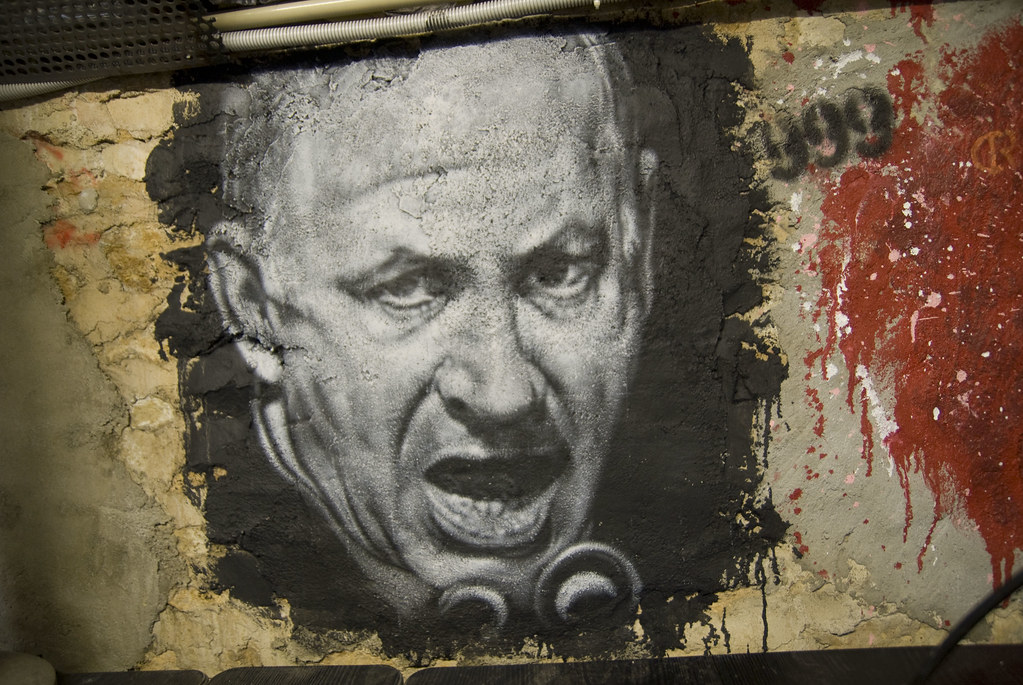
This escalation raises significant concerns about potential retaliation from Hamas and broader implications for regional stability. Israel’s actions have extended beyond targeting Hamas, affecting Iran and other Arab countries, leading to accusations of violations of international law and harm to civilian populations. Organizations like Amnesty International and Human Rights Watch have documented instances of civilian casualties and damage to infrastructure resulting from Israeli airstrikes.
The ongoing conflict has drawn international scrutiny, with the humanitarian situation in Gaza worsening amid military operations. According to the United Nations Office for the Coordination of Humanitarian Affairs (OCHA), over 2 million people in Gaza are in need of humanitarian assistance, facing food insecurity, lack of medical supplies, and inadequate shelter due to the destruction caused by the conflict.
Khalil al-Hayya, the new interim leader of Hamas and chief negotiator, vowed to continue resistance in the wake of Yahya Sinwar’s death, suggesting it will only ignite further determination within the movement. Sinwar had previously stated that “the best gift the enemy and occupation can present to me is to kill me,” a sentiment that reflects the historical pattern where targeted assassinations and bombings lead to increased resistance. The 101 Israeli captives still held by Hamas are now promised that their captivity will continue until Israel fully halts its occupation and bombardment of Palestine. Meanwhile, IDF spokesperson Rear Admiral Daniel Hagari argues that Sinwar was exploiting his political role and hiding behind his people—privileges not afforded to ordinary citizens.
As Israel intensifies military operations with U.S. support, the repercussions for both sides are profound. Sinwar’s elimination, emphasizes the ongoing cycle of violence and retaliation that has characterized this conflict for decades. A recent report by the Independent United Nations Commission of Inquiry on the Occupied Palestinian Territory, including East Jerusalem, has called for the immediate return of land and natural resources to Palestinians displaced since 1967 and an end to Israel’s illegal occupation.
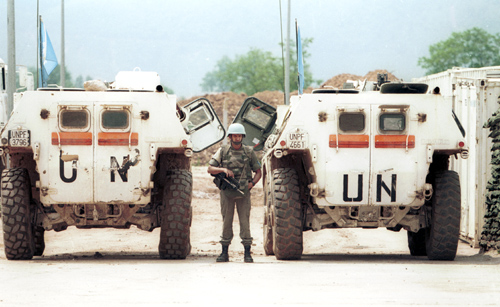
The Commission emphasized that countries continuing to aid Israel in its illegal occupation would be complicit in failing to prevent a potential genocide. Additionally, the report highlighted that Israel has committed war crimes and crimes against humanity, including the destruction of Gaza’s healthcare system and relentless attacks on medical personnel and facilities. The Commission stressed the need for international accountability and the importance of addressing the root causes of the conflict to achieve lasting peace and stability in the region.
The humanitarian crisis in Gaza continues to deepen, with millions in desperate need of assistance amid widespread destruction and displacement. As Hamas pledges to persist in its resistance, the prospect for peace remains tenuous, dependent on significant shifts in political dynamics and policies. The international community’s calls for restraint and dialogue are increasingly critical as the region stands at a crossroads, with the potential for further escalation threatening both Palestinian and Israeli lives.





